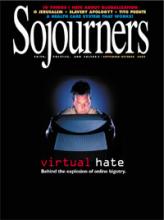Is Cuba a revolutionary triumph or a communist tragedy? Has the great social experiment passed its prime or can it continue on in the post-Cold War era? María López Vigil effectively examines the intricacies of the Cuban revolution in her collection of socio-political essays titled Cuba: Neither Heaven Nor Hell.
López Vigil, a progressive Cuban expatriate, has spent years writing for the Nicaraguan publication Envio. The essays in her book were published in Envio between 1993 and 1998 and show her progression from leftist idealism to a mature, constructively critical view of Cuban politics and social change since 1959. At the beginning of each chapter, López Vigil has added introductory paragraphs as self-reflection on what she had previously published in Envio. The last chapter is a glossary of terms used in civil society, showing how politics plays out in everyday life.
López Vigil looks toward the island with starry eyes in her first chapter, written in 1993. She is impressed with Cuban turnout on election day, barely questioning the secrecy of the vote. She seems to shrug off the fact that for each political office, only one candidate’s name was listed on the ballot. Still, she appreciates the strong sense of nationalism and collectivism that Cubans share. Her subsequent reflections reveal that she recognizes her naiveté in praising the 1993 elections as democratic and free.
Read the Full Article
